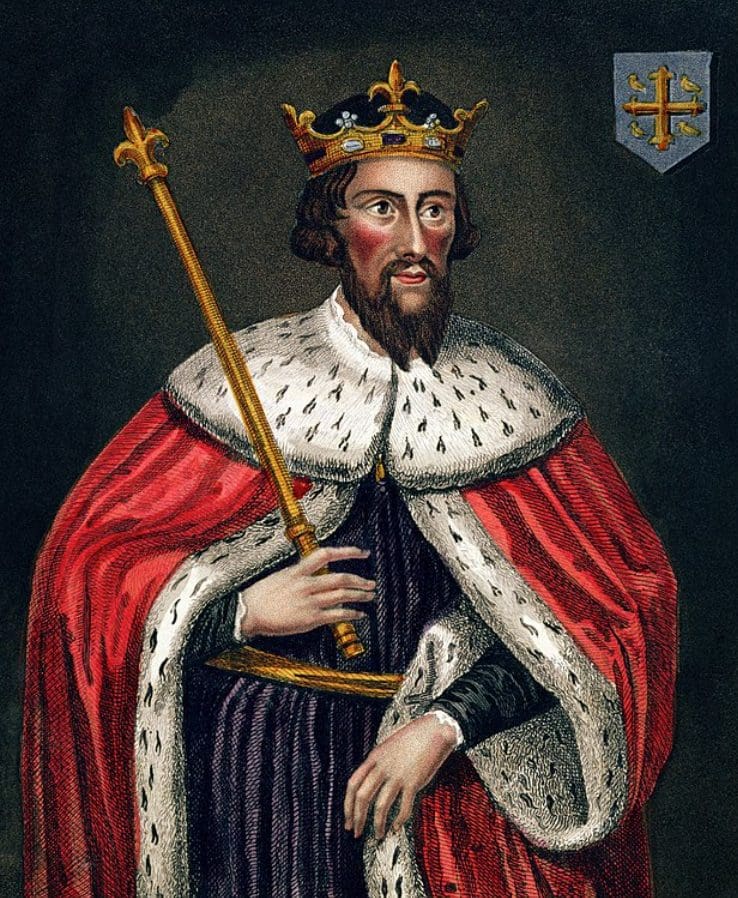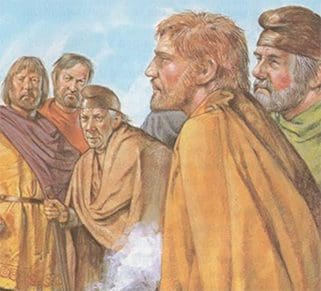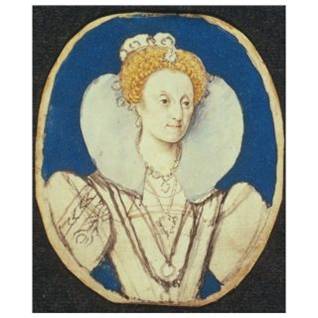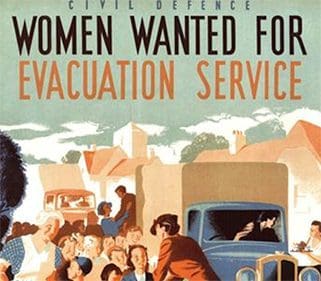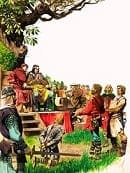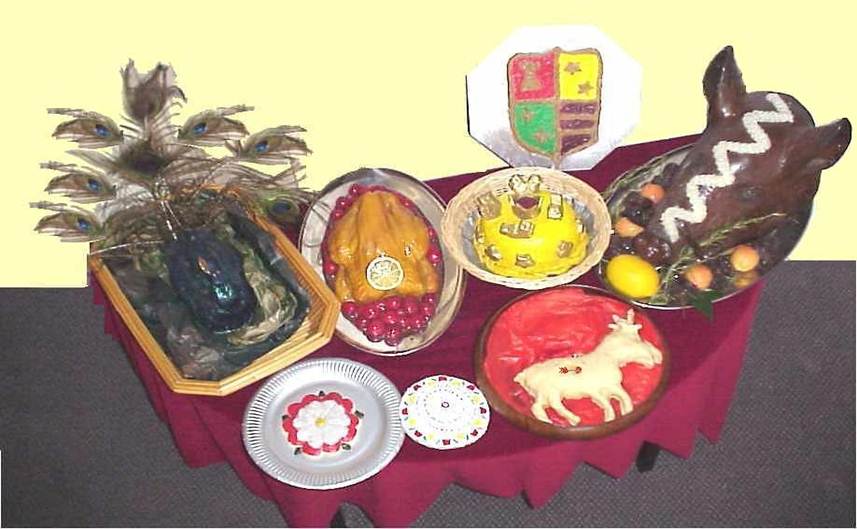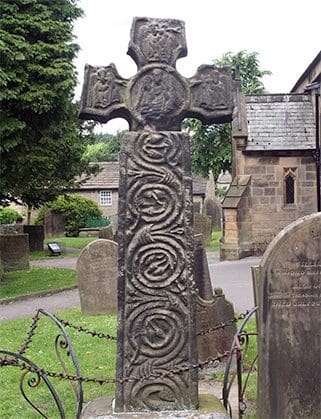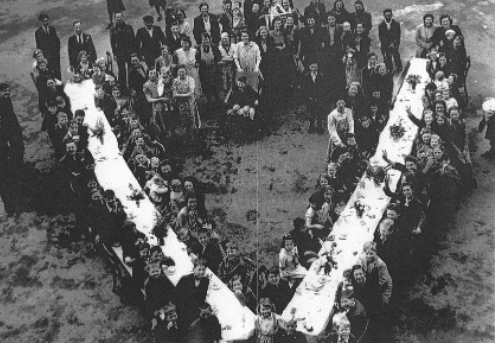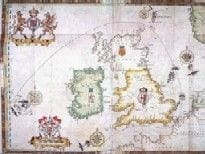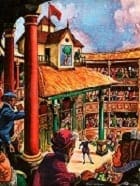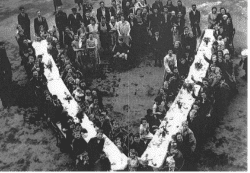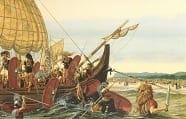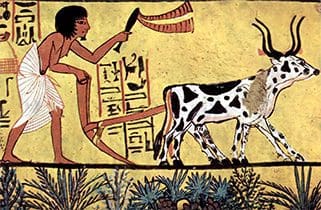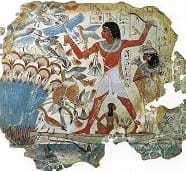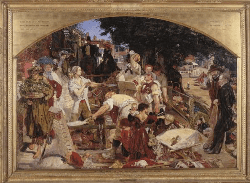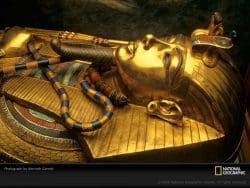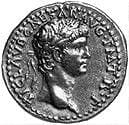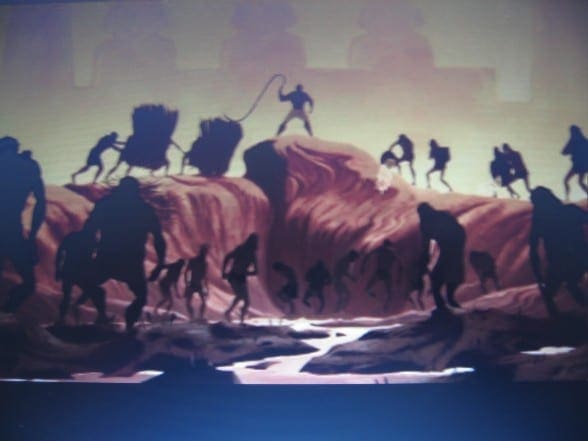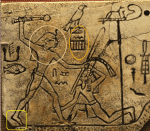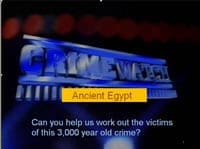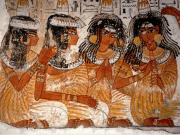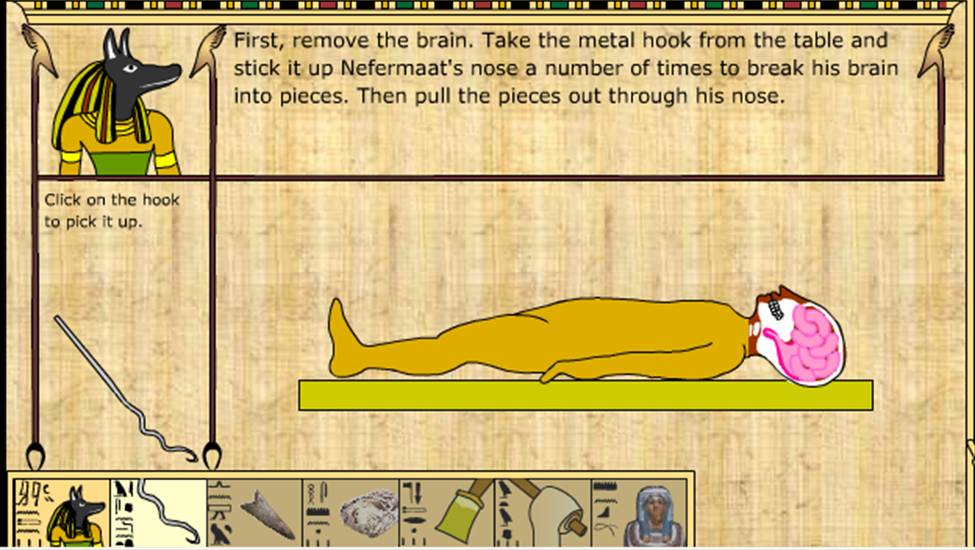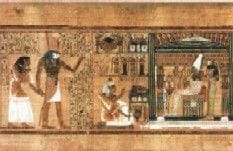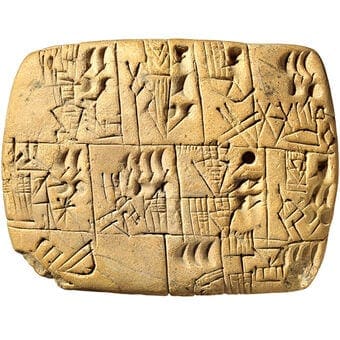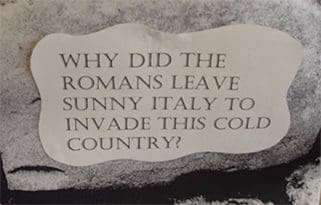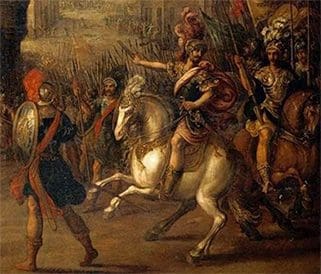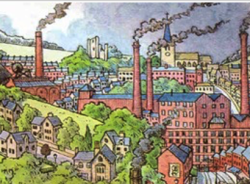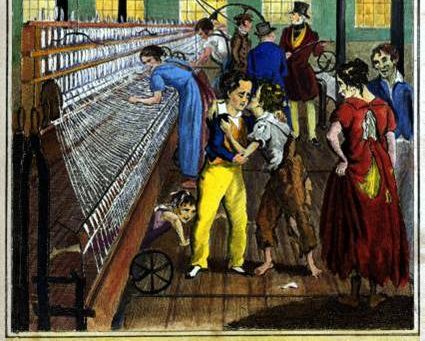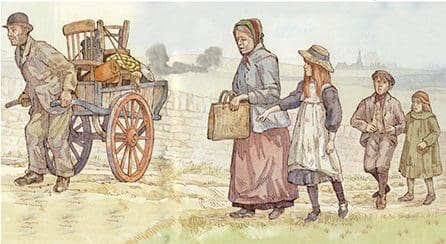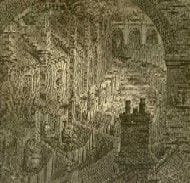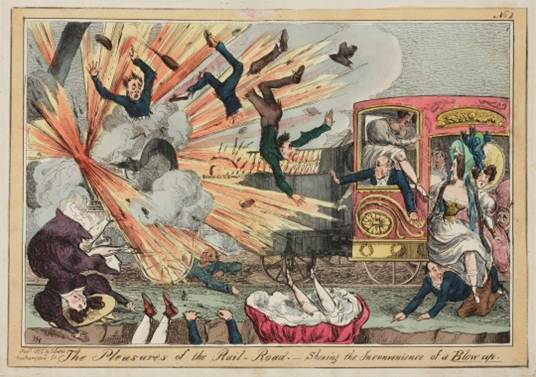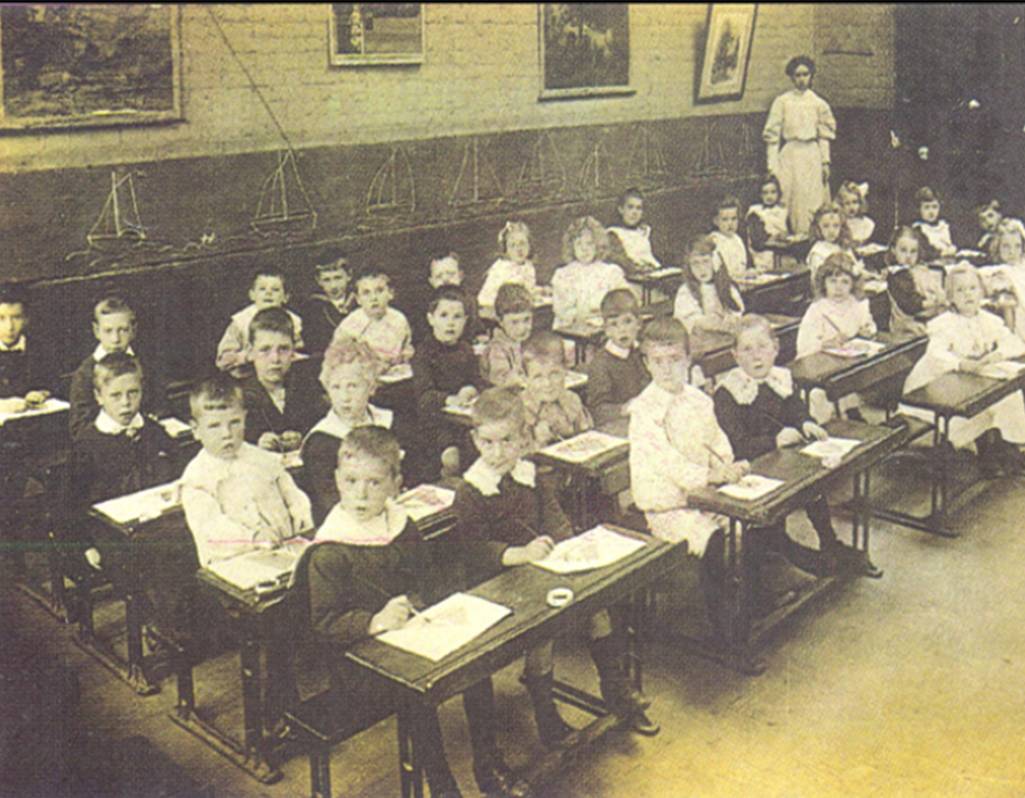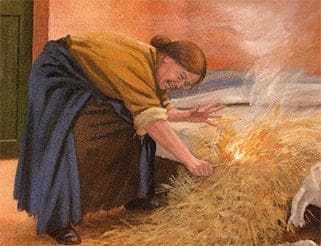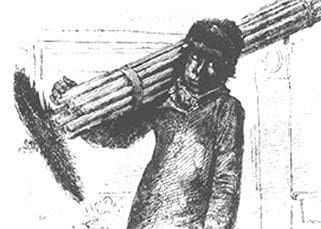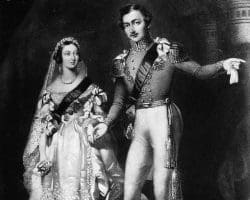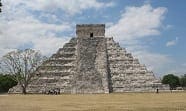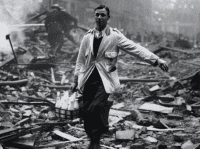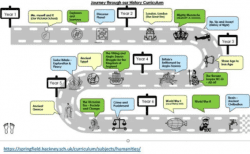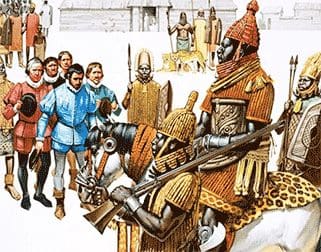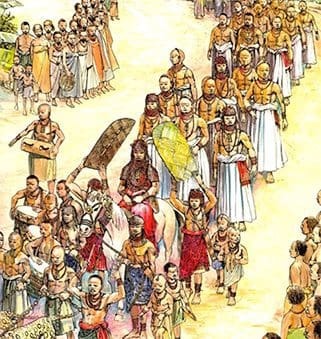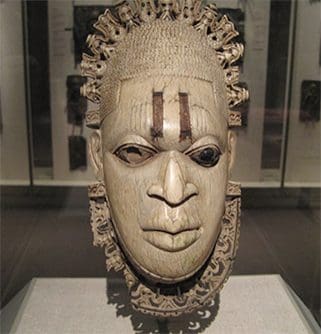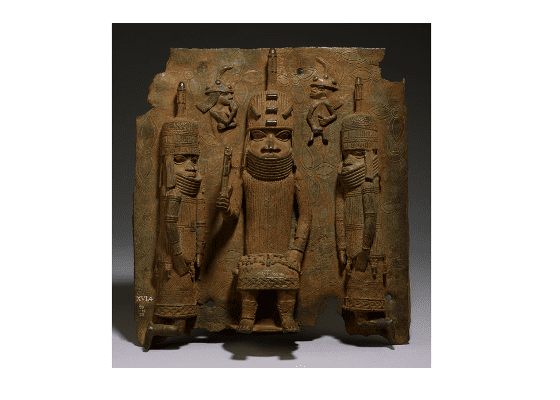Teaching history at Key stage 2 (KS2)
Anglo-Saxons – KQ5 – Alfred the Great. How great was he?
In this outstanding lesson, pupils are asked to critique and then improve the BBC children’s website entry for Alfred the…
Read MoreCrime and Punishment – KQ6 – Enquiry – Has the way we catch and punish criminals improved in the last 100 years?
Having analysed a graph showing the way the prison population has risen so dramatically over the last 75 years, pupils…
Read MoreKeeping up to date with your teaching of Alfred the Great
The outstanding lesson on Alfred addresses the key question as to his greatness. Has it been exaggerated? You might like…
Read MoreAnglo-Saxons – KQ6 – How effective was Anglo-Saxon justice?
Pupils work in groups to create a series of short dramatic enactments, each of which illustrates a way of keeping…
Read MoreLife in Tudor Times – KQ4 – Elizabeth I portraits – why aren’t things what they seem?
This powerful lesson on Tudor portraits as propaganda gives pupils the chance to appreciate that things aren’t always what they…
Read MoreWW2 – KQ5 – Britain at war. The Home Front – Why is it so difficult to be sure what life was really like on the Home Front?
Why is it so difficult to be sure what life was really like on the Home Front? Two great tasks…
Read MoreAnglo-Saxons – KQ7 – Were Saxon times really ‘Dark’ Ages?
Pupils design a two-sided paper plate on which they record the arguments used in the debate about the ‘Darkness’ of…
Read MoreLife in Tudor Times – KQ4 part 2 – Get ready – the queen is coming!
This enquiry focuses on helping children to learn about the power and authority of Queen Elizabeth and to appreciate the…
Read MoreHow well do you and your pupils understand the Anglo-Saxons? Diagnostic Smart Task
This short activity contains a number of statements about the Anglo-Saxons (RS1) which can be used diagnostically. Some are correct:…
Read MoreWW2 – KQ6 – What was VE day really like? Advising the film producer
In this really varied lesson pupils are asked to offer first-rate historical advice to a film producer who is about…
Read MoreLife in Tudor Times – KQ5 – How was the Spanish Armada defeated by the smaller English fleet? Using a technique called Waiting room
This lesson works really well because the tension you build into the waiting room activity gets all the class involved…
Read MoreLife in Tudor Times – KQ6 – How did people enjoy themselves in Elizabethan England?
This KS2 enquiry comprises three outstanding activities: 6a. Advising the film director To imaginatively reconstruct the scene using a variety…
Read More10 things your pupils MUST know about the Anglo-Saxons
For many of you teaching the Anglo-Saxons will be something you are doing forte very first time. It is easy…
Read MoreWW2 – KQ6 Background information – What was VE Day really like?
8 May 1945 – VE (Victory in Europe) Day – was one that remained long in the memory of all…
Read MoreRoman Britain – KQ1 part 1 – From Caesar’s invasions to Claudius’ conquest
This first part of the first enquiry links to earlier work on the Iron Age and takes pupils from Julius…
Read MoreAncient Egypt – KQ1 – Launching the Enquiry. So you think you know about Ancient Egypt?
What can we quickly add to what we already know about Ancient Egypt? This way of starting should build on…
Read MoreAncient Egypt – KQ2 – How can we discover what Ancient Egypt was like over 5,000 years ago?
Pupils are invited to join an archaeological excavation, using slide 2-5 to set the scene. Before they can begin their…
Read MoreBeyond Face Value – KQ4 – Why did Ford Madox Brown paint this detailed picture of a scene that never existed?
This lesson revolves around a single painting entitled Work, painted by Ford Madox Brown between 1852 and 1865. Using Fastest…
Read MoreAncient Egypt – KQ3 part 1 – The opening of Tutankhamun’s tomb
The opening of Tutankhamun’s tomb: a brilliant reconstruction relay The activity that forms the basis of this lesson is called…
Read MoreRoman Britain – KQ1 part 2 – Why did the Romans invade Britain?
This lesson uses a variety of approaches including role play, decision-making, card sorts, hot seating and completing speech bubbles. The…
Read MoreAncient Egypt – KQ3 Part 2 – So who did build the pyramids? Did the Prince of Egypt film get it right?
This active lesson for Year 4 has been adapted from the one featured in the QCA Teacher Assessment Activities for…
Read MoreAncient Egypt – KQ4 Part 1 – What can an old clay model and a pair of old sandals tell us about life in Ancient Egypt 5,000 years ago?
What does the evidence tell us about the everyday life for men women and children? Here the focus is on…
Read MoreAncient Egypt – KQ4 Part 2 – Using evidence of Life in Ancient Egypt KS2 – Pupils love playing history detectives
Crimewatch Ancient Egypt: Tomb Robbers This fun activity is a brilliant way of developing pupils’ deductive thinking skills in a…
Read MoreAncient Egypt – KQ4 – Additional Smart Task
(NB This is not included on the planner) How can we learn so much about Ancient Egypt from just these…
Read MoreAncient Egypt – KQ5 Part 1 – Embalming the dead in Ancient Egypt : Great history and great literacy too
Helping the Hopeless Embalmer This really fun lesson, in the style of ‘mantle of expert’, asks the children to help…
Read MoreAncient Egypt – KQ5 Part 2 – After-life lesson KS2
Understanding the Book of the Dead: from page to stage Using simple drama techniques to make a very old document…
Read MoreAncient Egypt – KQ5 – After-life lesson additional information – Dealing with sensitive issues
This supports the teaching of KQ5. As you know, pupils get very excited by whole topic of mummification. Whilst we…
Read MoreAncient Egypt – KQ6 – What did Ancient Egypt have in common with other civilizations at the time?
The main activity here is called gallery. Pupils are shown images (printed from the KQ6 PowerPoint) which are displayed around…
Read MoreTen things your KS2 pupils should know about language and communication in the ancient world.
This article should inform your teaching of the Ancient Civilizations topic Imagine a world without writing-without any writing at all:…
Read MoreRoman Britain – KQ1 part 3 – The Roman invasion: have the books got it right?
This lesson follows on from the decision-making role play ‘Why did Claudius invade?’ Pupils are now asked to create a…
Read MoreRoman Britain – Supporting KQ1 – Julius Caesar and the invasions of Britain. Why did he come?
Julius Caesar and the invasions of Britain. Why did he come? Exploring human motivation. When Julius Caesar invaded in successive…
Read MoreRoman Britain – KQ2 part 1 – Should the Celts take on the Romans? A reconstruction relay.
The Roman Army This highly active, boy friendly activity has proved extremely popular in schools and has led to some…
Read MoreBeyond Face Value – KQ5 – Were the evacuees as happy as they were shown?
Two great tasks which together make up Key Question 5 of the Britain at War medium term plan, Why is…
Read MoreVictorian Britain – KQ1 – What were the main changes that took place during this time?
Motivating introductory lessons which , from the outset, challenges pupils to compare two images of the same place from the…
Read MoreVictorian Britain – KQ2 – Children working in Victorian factories: was it as bad as they tell us?
This lesson is designed for Y5/6 pupils who already have a little knowledge of industrial change but have not yet…
Read MoreVictorian Britain – KQ3 – If life was so hard for families in the towns why did so many leave the countryside and move to the towns in Victorian times? – a history mystery
Starting a lesson with an apparent contradiction is a good way of engaging pupils interest. This ‘history mystery’ makes excellent…
Read MoreVictorian Britain – KQ3a – What the Dickens was life like in the Victorian cities?
This lesson makes extremely good use of a technique called creative tension. Pupils listen, with their eyes closed, to a…
Read MoreVictorian Britain – KQ4 – Victorian railways: winners and losers. A thinking skills activity leading to a role play
This active thinking skills lesson asks pupils to consider the likely effect of the coming of the railways on different…
Read MoreVictorian Britian – KQ5a – Going to school in Victorian times: can pupils write a paragraph for a KS1 textbook using photographs alone? SMART TASK Y3-5
This activity puts pupils in the role as researchers for a new book on Victorian schools. They have been commissioned…
Read MoreVictorian Britain – KQ5b – Victorian poor and the workhouse; what does Martha’s story tell us?
NB This is an additional lesson that does not appear on the planner. This topic couldn’t be more relevant to…
Read MoreVictorian Britain – KQ5c – Climbing boys enquiry – SMART TASK
This enquiry falls into five parts: A selection of four related enquiry tasks which encourage pupils to explore and then…
Read MoreVictorian Britain – KQ6 – The Victorian Era: Dark Age or Golden Age?
This is the concluding lesson on the Victorians. It starts with a plate and a poster commemorating the achievements of…
Read More12 things you need to know about the Mayan civilization before you teach it at KS2
1. The Mayan settlements were among the largest anywhere in the world in year 1000 In the year 1000 settlements…
Read MoreBeyond Face Value – KQ6 – The Blitz. What was photographer Fred’s clever way of beating the censors?
In this fascinating lesson pupils learn how photographers avoided the censors they saw in KQ5 and how the government used…
Read MorePlotting your pupils journey in history learning across the school
Just came across this visual depiction of the history curriculum at Springfield School in Hackney and thought I’d bring it…
Read MoreMedium Term Planner for Thematic unit Beyond Face Value Year 6
This end-of-key stage unit fulfils the post-1066 thematic requirement of the National Curriculum, but it does so in a particularly…
Read MoreBenin – KQ1 – Why do YOU think we should study Benin in KS2 history? SMART TASK
After setting Benin in its context of place and time, pupils tour a gallery of images which give them hints…
Read MoreBenin – KQ2 – What sort of place was Benin 500 to 1,000 years ago? SMART TASK
Here pupils are introduced to the idea of a society from a distant time about which very little evidence remains….
Read MoreBenin – KQ3 – What can we tell about Benin society at this time from the images and artefacts that have survived?
Using evidence to study Benin This lesson revolves round four principal activities: Fastest Finger First; Mining for meaning, using an…
Read MoreBenin – KQ4 – What changes took place when the European settlers started trading? Case study of one of the Benin bronzes
The first part of this session revolves around the encounter between indigenous Benin people and the European traders. It then…
Read More
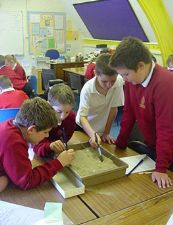 Welcome to the section for teaching history at KS2 where you will find masses of advice on how to make history both fun and satisfyingly challenging. You will be helped to design and plan an exciting primary history curriculum and taking into account the difficult areas of assessment and progression and mindful of the new focus on curriculum within OFSTED’s framework.
Welcome to the section for teaching history at KS2 where you will find masses of advice on how to make history both fun and satisfyingly challenging. You will be helped to design and plan an exciting primary history curriculum and taking into account the difficult areas of assessment and progression and mindful of the new focus on curriculum within OFSTED’s framework.